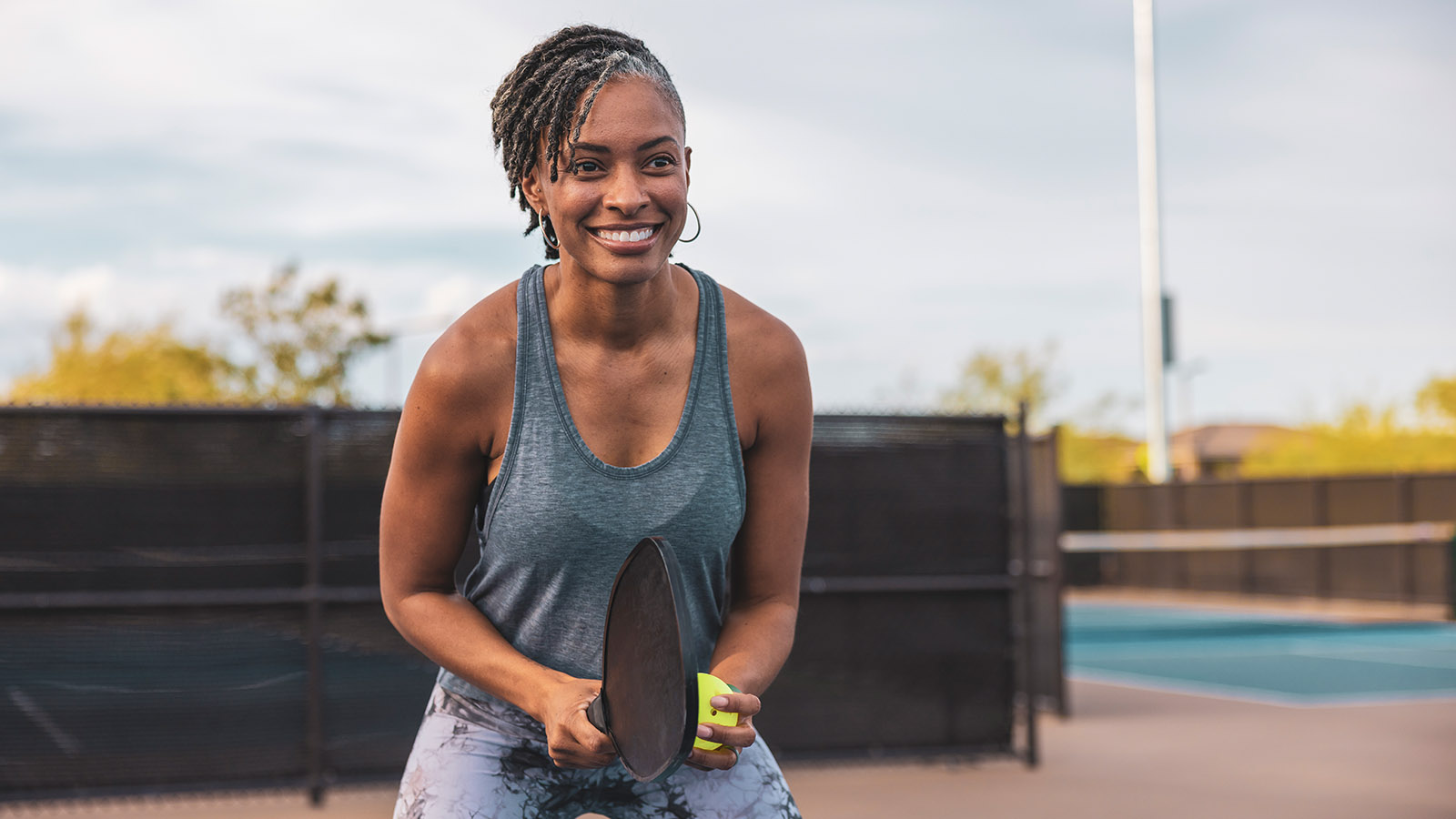7 Simple Tips to Focus on Healthy Aging
No matter how old you are, it's never too late to take steps to get healthy. These simple tips will help you get started today.

By Letitia Price, MD, Internal Medicine—Virtua Primary Care - Marlton
It’s more likely now than ever to live to age 80 and beyond. But, the million-dollar question is—will you be alive and well?
Some risk factors for age-related diseases are out of your control. But, with these tips, you can improve your health, life, and how you feel—and you can start today.
Exercise
Exercise helps you develop strong muscles and bones, keeps your heart healthier, and lowers your blood pressure. If you don’t exercise regularly, set a goal to start moving more until you develop a consistent exercise routine. Keep it simple—start by walking every day, work on stretching and balance, and then add in strength-training exercises by lifting light weights or doing bodyweight exercises. If you enjoy biking, hiking, or swimming, these are all great options, too. If you have any existing health issues, talk with your primary care provider for advice before starting a new exercise routine.
Eat well
Aim to eat a balanced diet that includes plenty of fruits, vegetables, whole grains, and healthy fats from nuts and fish. If you need ideas for healthy eating, a registered dietitian can work with you to analyze your food preferences and help you come up with a plan that works for you. There’s no perfect diet, especially if you can’t stick to it. The key is to build a plan made up of healthy, nourishing foods, but that also leaves room for an occasional indulgence like chocolate or ice cream.
Weight matters
Don’t take your weight for granted. Your metabolism changes as you get older, and it can become more difficult to maintain your ideal weight. However, if you’re overweight or obese, you can still lower your health risks by making healthy food choices and exercising regularly.
Catch some ZZZs
Getting older doesn’t mean you require less sleep. Seven to nine hours of sleep per day is critical for maintaining a healthy metabolism and managing stress. Also, lack of sleep has been linked to higher blood pressure, increased risk of stroke, and even changes in your mood. Set yourself up for a good night’s sleep with a relaxing sleep routine. If you struggle with insomnia or snoring, a sleep study can help determine if you need expert assistance and treatment—some can even be done at home with a special monitor.
Manage stress
Exercise, massage, meditation, reading a good book, or relaxing with a cup of herbal or decaf tea at night are all simple techniques to de-stress, which helps improve blood pressure and eating habits. If you experience prolonged bouts of stress, anxiety, or depression, talk with your primary care provider about behavioral therapy and/or medications that might ease your symptoms and help you feel better.
Stay busy
Did you know that volunteering in your community, staying socially active, and finding ways to keep moving are more effective than brain games for preventing cognitive decline? These habits also help reduce depression by keeping you time-oriented and giving you a daily sense of purpose.
An ounce of prevention
No matter your age or stage of life, annual physical exams are essential to your ongoing health. Visiting your primary care provider for regular preventive care, screenings, and immunizations is one of the best ways to identify and treat health issues before they get worse.
Make a primary care appointment today
Schedule an appointment online now or call 844-896-6367 for an appointment.
Virtua Health’s primary care practices offer in-office and telehealth appointments to help you stay healthy.
